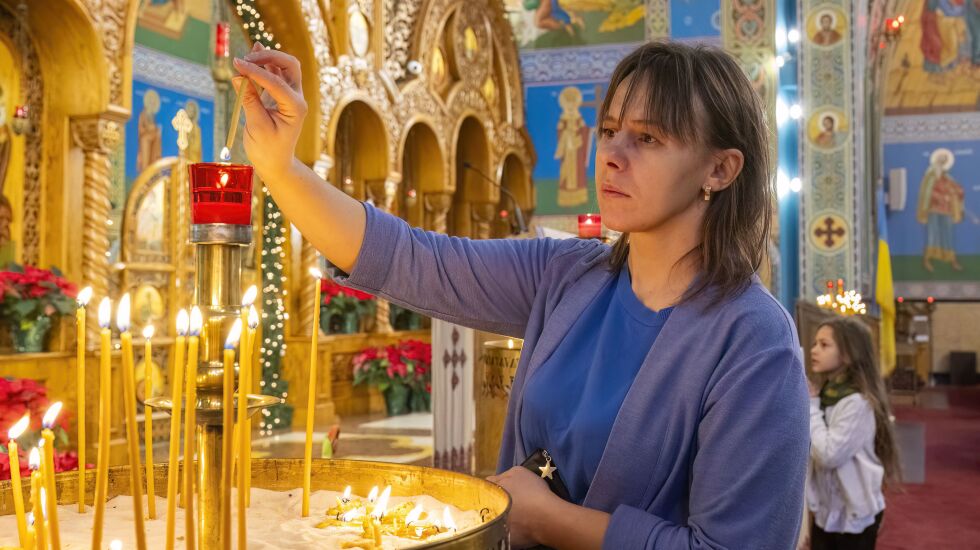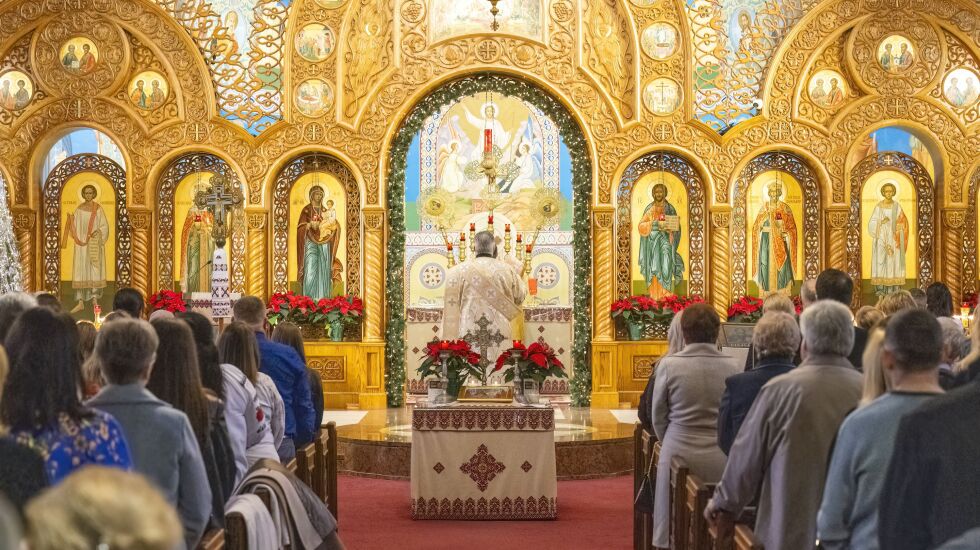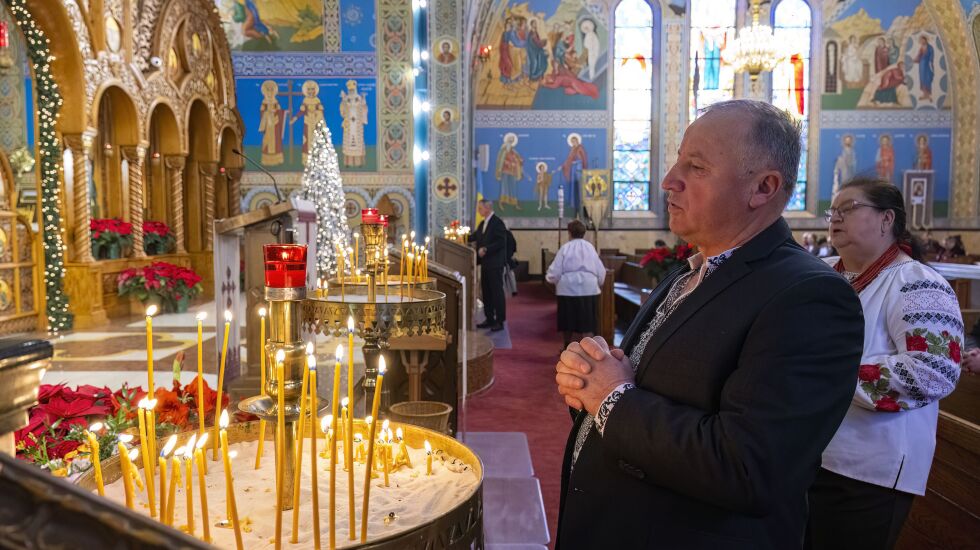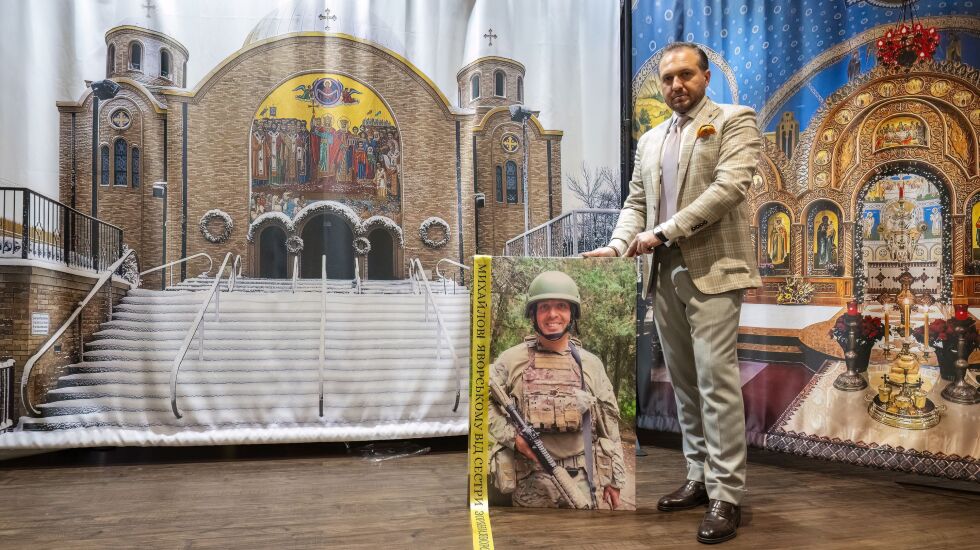
In Ukrainian Village, churches that typically see few visitors on Dec. 25, instead saw thousands Monday, who all came out to celebrate Christmas for the first time in line with the West, rather than Russia.
“It’s our first time celebrating with the whole world,” said Vyacheslav Pilyuyko, a native Ukrainian who grew up celebrating the holiday on Jan. 7. “We were [celebrating] with Russia, but now we’re separating from Russia, as much as possible.”
The move to celebrate Christmas on Dec. 25 has been spreading through the Ukrainian community since Russia’s Feb. 24, 2022 invasion.

But it achieved broad acceptance this year. Religious leaders approved it, and Ukraine’s president, Volodymyr Zelensky, signed it into law this summer, according to the Associated Press.
Chicago’s Ukrainian community, which recently rallied after a rash of pro-Putin stickers were pasted throughout Ukrainian Village, adopted it enthusiastically. About 54,000 people of Ukrainian heritage lived in the Chicago area as of February 2022, and many call the Ukrainian Village neighborhood home.
The three Ukrainian churches along Oakley Boulevard — Saints Volodymyr & Olha Ukrainian Catholic Church, St. Nicholas Ukrainian Catholic Cathedral and St. Volodymyr Ukrainian Orthodox Cathedral — were each packed.
At Saints Volodymyr & Olha on Superior, the nave, vestibule and upper balcony were standing room only. The basement auditorium, typically where parishioners mingle over coffee, was instead outfitted with a projector and hundreds of chairs.
Pilyuyko was among those standing outside, listening to the service on an outdoor speaker, installed initially to accommodate COVID-19-cautious parishioners but is now used for holiday overflow.
The 63-year-old, who left Ukraine just before the February 2022 invasion, attended the service with family.
The group was eagerly anticipating the upcoming festivities.
They planned to celebrate traditionally — donning embroidered clothes, setting the tables with linens and candles and enjoying a 12-course meal that includes kutia, a ceremonial grain dish, wild mushrooms and dumplings.

Polina Kuprien, Pilyuyko’s daughter who moved to Chicago before him, said the traditions are the same as ever, just earlier.
“I think everyone was anticipating this,” said Kuprien, holding Kristina, her American-born baby. “We want to be united with the rest of the world.”
The Rev. Oleh Kryvokulsky, the longtime church pastor, said moving up the holiday was something younger Ukrainians had long wanted to do, but the invasion accelerated that desire to distinguish themselves.
Kryvokulsky described the service as a return to how their ancestors celebrated the holiday centuries ago, before Ukraine was part of the Russian Empire.
For the service, he read a message from church patriarch the Rev. Sviatoslav Shevchuk that explicitly referenced the war.
Many Ukrainians fear American support for the country’s war effort will wane as the war moves into its third year and the Israel-Hamas war shows no signs of stopping.
For them, it remains close to home, despite the festive season.
Taras Dembereckyj’s 82-year-old grandmother is still there, and the loss of his friend Mykhaylo Yavorsky, who died on the front lines, is still fresh.
The pair were both born in Ukraine, immigrated and grew up attending the Ukrainian Village church.
Yavorsky brought his adopted city back to Ukraine with him and became known by fellow soliders as “Chicago.”

“We’re praying for a new life, a new birth for our country,” said Dembereckyj, 37. “That’s what we hope for, to resurrect — new and fresh — and join the Western world.”
Contributing: Tyler Pasciak LaRiviere
Michael Loria is a staff reporter for the Chicago Sun-Times via Report for America, a not-for-profit journalism program that aims to bolster the paper’s coverage of communities on the South Side and West Side.







